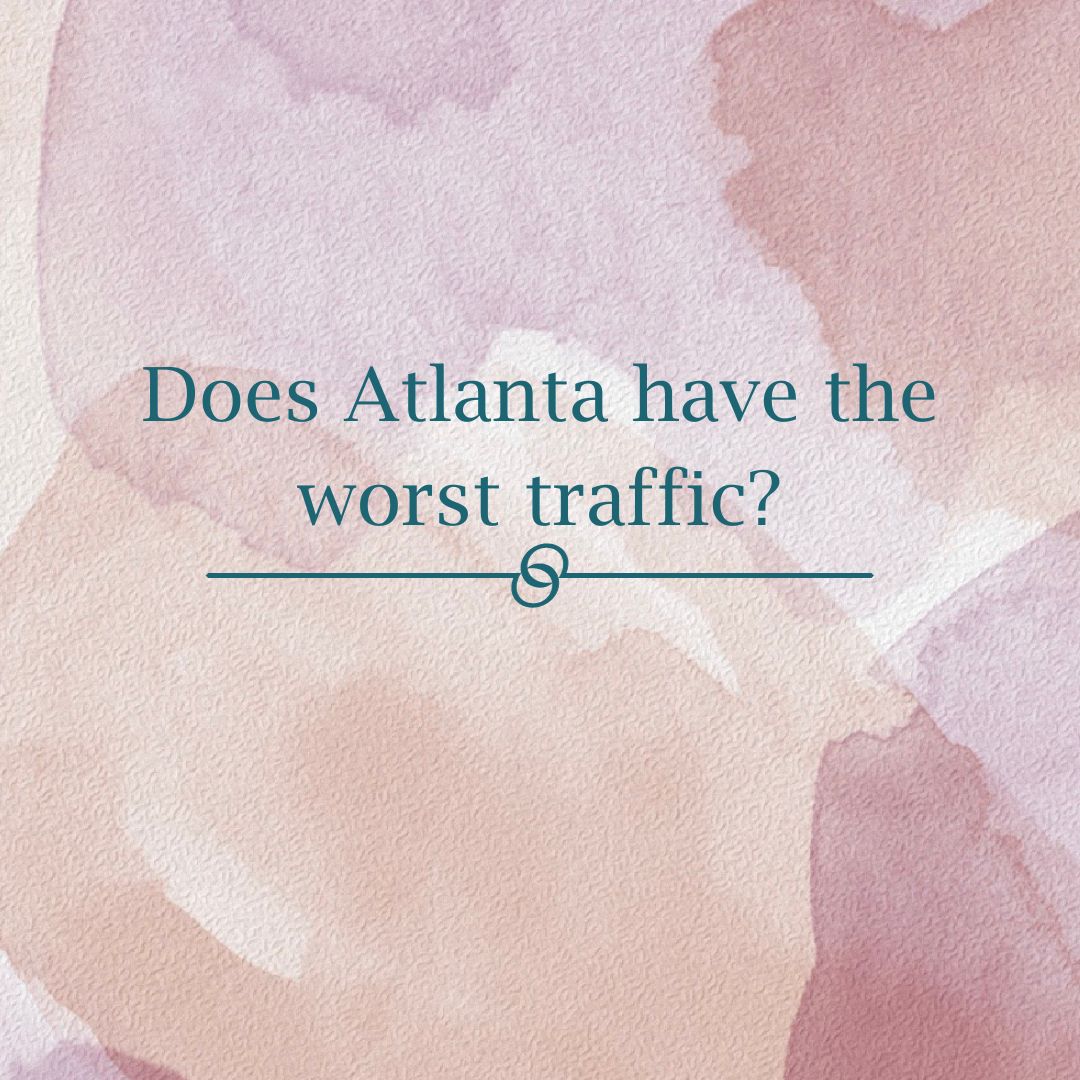
Does Atlanta Have the Worst Traffic?
If you’ve ever visited or lived in Atlanta, you’ve probably wondered: “Does Atlanta have the worst traffic?” Honestly, the answer is no (just see LA or NYC…or even Houston), but just because it’s not the worst does not mean it’s the best.
Based on recent research and statistical data, it’s clear that Atlanta struggles with significant traffic issues.
Despite not being the absolute worst, it’s undeniable that Atlanta’s traffic situation is far from ideal.
Let’s take a look more at how Atlanta does with traffic, including times to avoid and reasons why traffic is bad when it’s bad.
How does Atlanta rank in traffic?
When comparing Atlanta’s traffic to other major US cities, its rank fluctuates depending on the parameters of the study.
However, it consistently finds itself among the top offenders.
According to INRIX, a leading provider of traffic information and driver services, Atlanta finds itself in the top 10 most congested urban areas in the United States. In fact, traffic congestion in Atlanta globally ranks 15th among 404 cities in 58 countries.
Atlanta has also been identified as having some of the worst traffic bottlenecks in the country.
These are areas where traffic regularly slows down or stops, causing significant delays.
What is the average commute time in Atlanta?
The average commute time in Atlanta is significantly impacted by these traffic conditions.
Commuters in Atlanta lose an average of 53 hours to congestion annually.
This figure puts Atlanta as having the 10th worst traffic of any US city.
To put this into perspective, Atlanta’s traffic situation is worse than many other major cities but doesn’t top the list.
Cities like Chicago, Boston, New York City, and Los Angeles have been identified to have more severe traffic conditions.
Atlanta Traffic Times to Avoid
Navigating Atlanta’s traffic can be a daunting task, especially during peak hours.
From what we’ve seen, the busiest times tend to be between 6am to 9am and again from 4pm to 6:30pm, aligning with typical commuting hours.
The city seems to be particularly congested in the evenings. This is due to the vibrant nightlife and venues of the city.
However, if you’re planning a drive through Atlanta, the optimal travel window is generally between 10am and 3pm, which is when the roads are less crowded.
If you can’t avoid traveling during peak hours, it’s recommended to keep your navigation system updated and consider using alternative routes to bypass heavy traffic areas.
Keep in mind that unforeseen factors like weather conditions and construction work can also significantly impact travel times.
Why is Traffic So Bad in Atlanta Right Now?
This isn’t just a complaint – if you live in or otherwise drive through Atlanta for work, you might often ask yourself this question. (I know I do, often – especially if it’s not “peak hours”.)
As in other big cities, multiple factors contribute to bad traffic at any time of the day, including accidents, ongoing road construction, and closures.
According to some folks, the root cause of Atlanta’s persistent traffic problems can be traced back to underinvestment in public transit, lack of urban planning, and certain political and racial issues that hinder comprehensive solutions.
It’s also worth noting that specific routes such as US-27, US-29, GA-41, GA-77-SPUR, and Macedonia Rd are currently affected by various disruptions, further exacerbating the situation.
As always, it’s recommended for drivers to stay updated on the latest traffic conditions and plan their journeys accordingly.
Drive alert and drive safe in the A.
The Bottom Line
While Atlanta may not hold the title for the absolute worst traffic, it has significant traffic problems that need addressing.
It’s essential for city planners, policymakers, and residents to work towards solutions that can alleviate these issues and improve the overall quality of life in Atlanta.
For us as drivers – stay alert and stay safe.